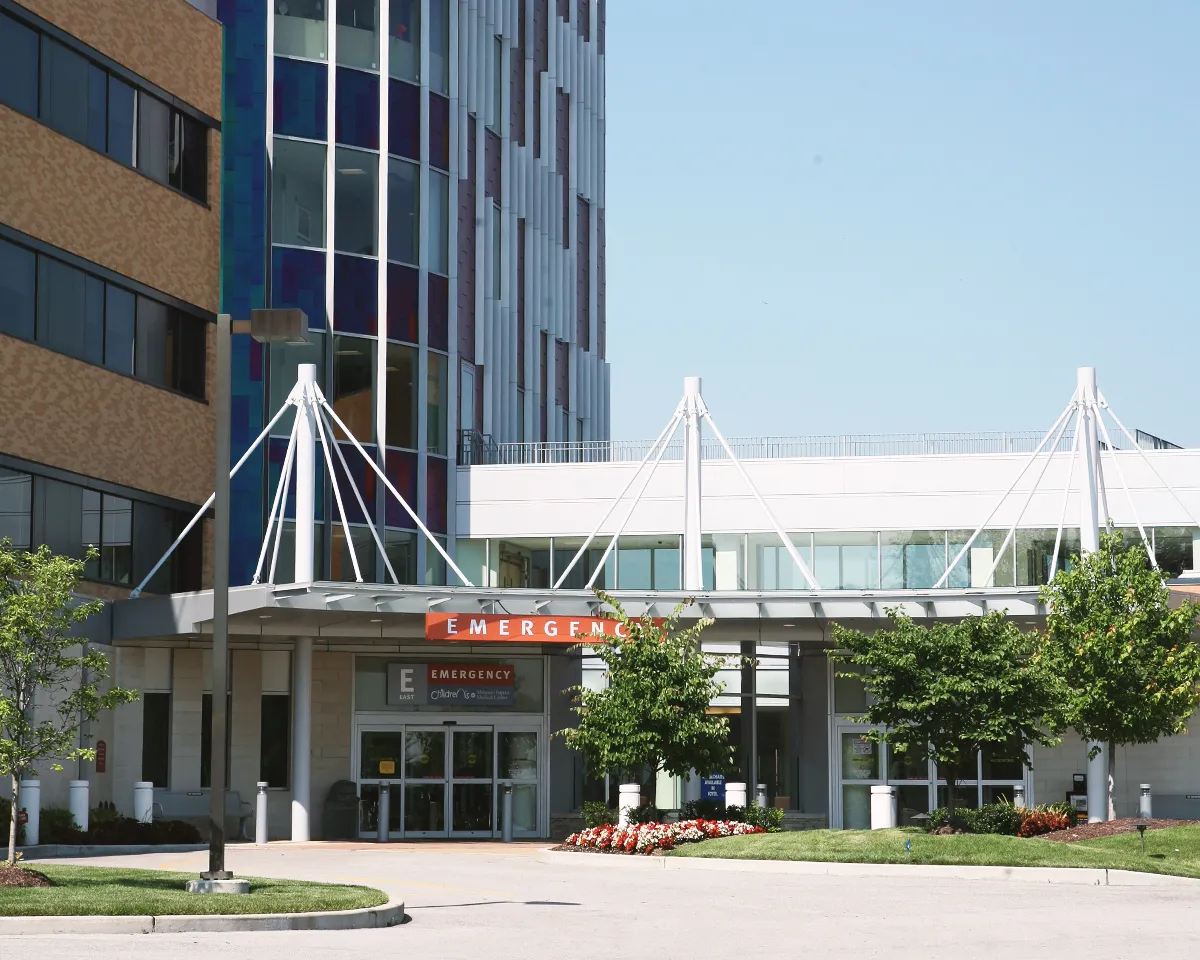Epilepsy
Finding out you have epilepsy can significantly affect your daily life and our goal is to help you gain optimal control over epilepsy symptoms. From diagnosis to treatment and recovery, we offer advanced care, walking you through each step of your treatment journey with compassion and support.
BJC HealthCare works with Washington University physicians, BJC Medical Group, and providers across the region to deliver extraordinary care. We use the latest technologies to provide effective epilepsy treatment. Our research efforts allow us to continue providing exceptional care as new treatments are discovered.
You benefit from:
Recognized excellence: One of our locations is recognized as a national Epilepsy Center of Excellence. Our specialized team partners with Washington University School of Medicine to stay at the forefront of exceptional epilepsy care.
Effective therapies: Our team of neurologists, neurosurgeons, neuropsychologists and epilepsy nurses continues to adopt effective new therapies. These advancements have made it possible to control, and even permanently stop, disabling seizure disorders, allowing you to lead a normal life.
Groundbreaking treatments: As pioneers in epilepsy treatment, we were among the first hospitals in the United States to use brain surgery on a regular basis to treat seizure disorders. Today, we continue to be leaders in our field, wielding the latest techniques, such as brain laser surgery, video electroencephalography (EEG) and intracranial electrode placement.
Research and clinical trials: Our doctors participate in clinical trials that allow us to improve our current treatment options. We also test promising new therapies, giving you access to the latest effective treatments.
Quick answers: We understand how frightening it can be to experience a seizure for the first time. At the First Seizure Clinic, we evaluate seizures quickly, aiming to find the root cause and get you started on treatment right away.
Epilepsy is a neurological disorder characterized by recurrent, unprovoked seizures. You can have seizures without having epilepsy, but recurrent seizures are usually a sign of epilepsy.
Epileptic seizures occur when irregular bursts of electrical activity lead to seizures. Seizures can cause a wide variety of symptoms, ranging from mild movements or sensations that you can remember later, to severe stiffening, shaking, prolonged confusion and loss of memory.
Seizures vary in severity and duration but typically last from a few seconds to a few minutes. Often, seizures are associated with alterations in perception and memory. If left uncontrolled, seizures are very disruptive to everyday life, interfering with your ability to work, travel and live independently.
More than 3 million Americans are affected by epilepsy and other seizure disorders. According to the Epilepsy Foundation, epilepsy is the third most common neurological disorder in the country, behind Alzheimer’s disease and stroke.
Our neurologists use appointments at the First Seizure Clinic as a chance to uncover the root cause of a seizure, evaluate the likelihood of it happening again and determine if you need any other testing.
Since epilepsy technically is defined as recurrent, unprovoked seizures, we can’t always diagnose epilepsy after one seizure. At our epilepsy monitoring unit (EMU), our neurologists determine the cause of your seizures and whether they are epileptic or nonepileptic.
Our epilepsy centers are equipped with the most advanced tools, including 24-hour video EEG and intracranial monitoring, to diagnose and better understand your seizures.
Diagnosing seizures may involve a series of tests, including:
Of all neurological disorders, epilepsy remains one of the most treatable. Treating hundreds of patients each year, our epilepsy specialists lead the way in developing and refining the most successful epilepsy treatments.
If your epilepsy does not respond to medication, your epileptologist may recommend the following treatments:
 Alton Memorial Hospital
Alton Memorial Hospital Barnes-Jewish Hospital
Barnes-Jewish Hospital Barnes-Jewish St. Peters Hospital
Barnes-Jewish St. Peters Hospital Barnes-Jewish West County Hospital
Barnes-Jewish West County Hospital Missouri Baptist Medical Center
Missouri Baptist Medical Center
Schedule your appointment
Call (314) 362-9355 or (800) 392-0936 to schedule your appointment with a specialist.